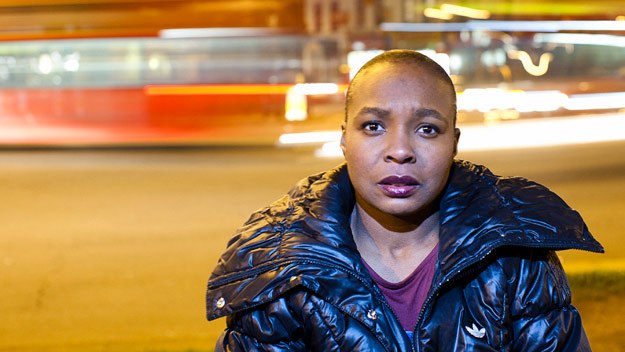Random, the Channel 4 single drama, has been in my head a lot the past couple of weeks. The violence in Ferguson has been a reason for this. Normally, when I watch a film or a TV drama, I try to divorce myself from reality as much as possible (unless it’s a documentary, which is a different beast). However, as all of you readers probably know, that isn’t always the case.
Random began as a spoken word/one-woman play by debbie tucker green (yes, all lowercase). Channel 4, my choice for the most creative network currently in Britain, opted to have green pen and direct a TV adaptation of her play. The idea was bold, but fraught with potential disaster. The first problem is the very bare-bones plot of the story. Courtesy of the Channel 4 page: A touching and profound story that follows, over the course of a single day, an ordinary family’s routine shattered by a random act. In the grand tradition of British social realist dramas, it all sounds familiar. On the technical level, just the very concept of adapting a one-woman play for television, a far more visual, contained medium, is not an easy endeavor. However, green accomplishes it with aplomb. The daring nature of the project was critically acclaimed, and rewarded with a well-deserved BAFTA TV Award for Best Single Drama.
For the lead role of Sister, green cast Nadine Marshall, the actress from the original theatrical run. Marshall’s BAFTA-nominated performance (she lost Best Actress to Vicky McClure for This is England ’86) is nothing short of extraordinary. As the central member of an Afro-Caribbean family in London, she wryly notes the miscellaneous details and annoyances of her day-to-day routine, ranging from her brother (Daniel Kaluuya; Skins and Black Mirror) and his messy room, to rude people at the bus stop, to a coworker who can’t make a decent cup of tea. The bouncy poetry of green’s script comes naturally to Marshall, who gives Sister a down-to-earth demeanor; we have all met a woman like her. However, Marshall also plays the roles of ever other family member. Well, not quite. She impersonates them, uncannily well, and while green has cast other actors in the different roles, Marshall frequently impersonates their voices and mannerisms. Dialogue will cut, sometimes mid-sentence between Marshall and the other actor. Marshall, sitting on a bare stage, will occasionally interact with doubles of herself. It all risks collapsing into a giant gimmick, but Marshall’s energy and talent shine through, allowing the world to see what Sister sees.
Much like Marshall’s performance, the film cuts between traditional film/television filmed portions (multiple actors, location-shooting) and Marshall sitting, sometimes alone, sometimes with doubles, on a bare stage. The initially discordant editing, the jumps between locations and the stage set, shouldn’t work. But, in a surprisingly subtle way, the edits suggest the cracks that will happen following the violent act.
Part of what makes Random so great is that it doesn’t offer any phony uplift. There is no catharsis, nor a happy ending. It starts funny and energetic but ends on a solemn, heart-breaking note. But, that’s the point: violence destroys, it’s not selective who it will affect, and while a lot of people can recover from it, it doesn’t diminish the pain it inflicts. In light of all the death and destruction that has been in the new as of late, and the countless families destroyed by it, by showing the despair and the quiet horror, Random gives voice to an all too-familiar tragedy, instead of bending it into chocolate box sentiment.
It’s grim viewing, but one that aims, in technical detail and story, to show just how powerful television can be.


